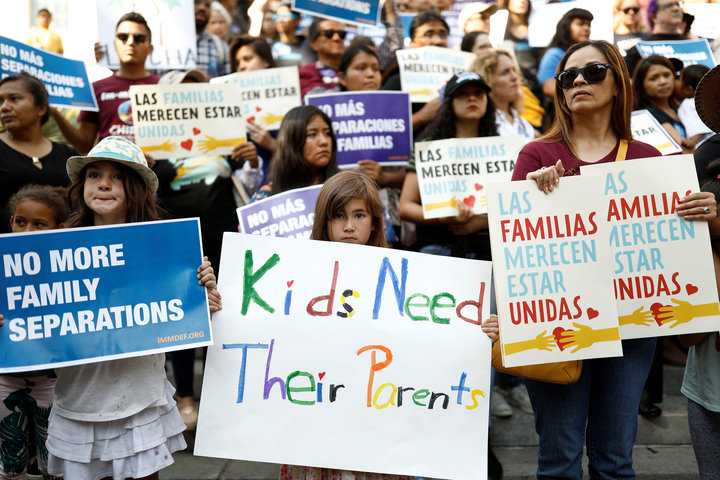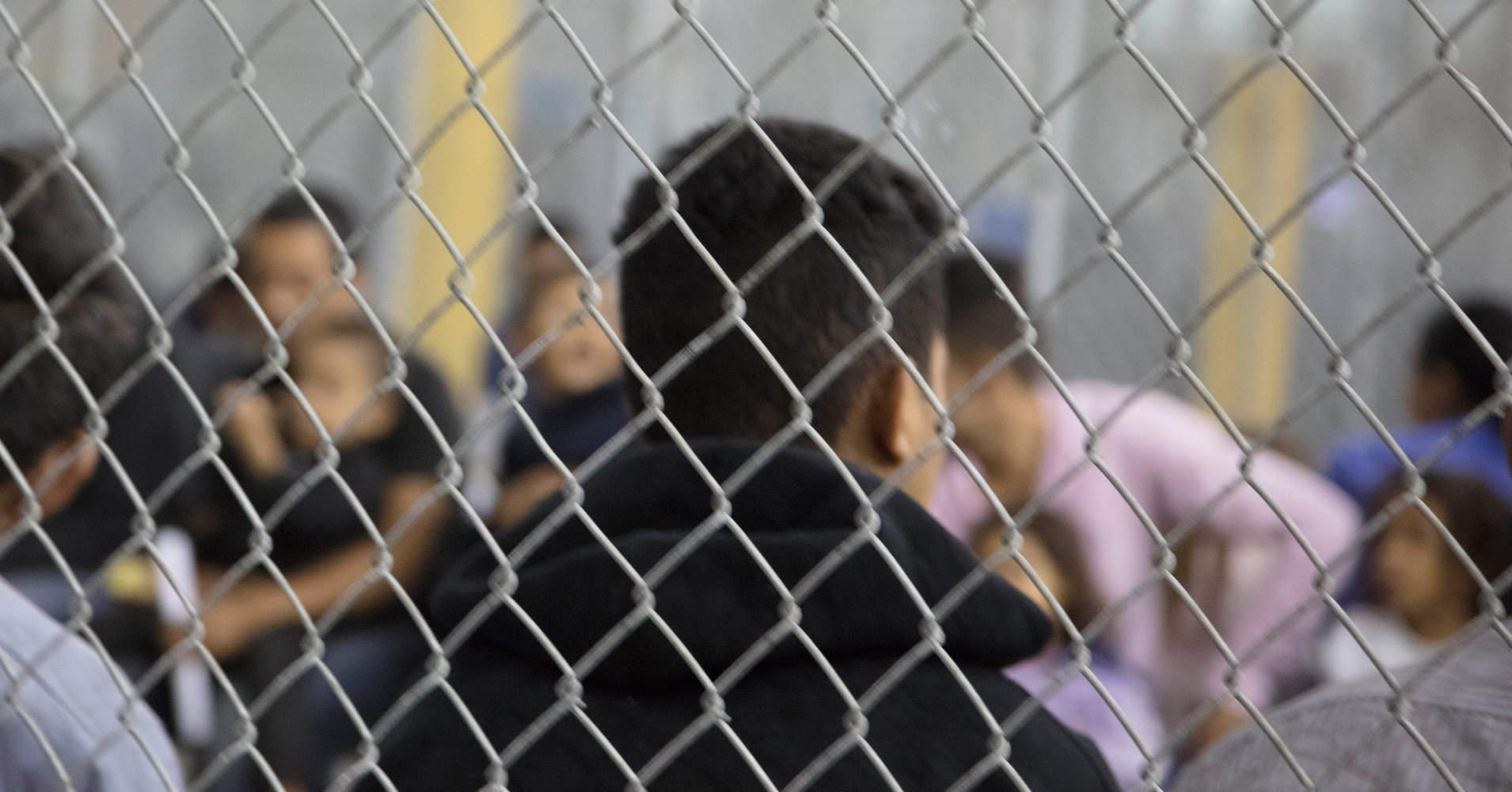[ad_1]
Lawmakers are expected to vote on two immigration bills in the House this week ― and while neither has garnered Democrats’ support, Republicans may be able to pass one anyway.
House members plan to vote Thursday on two broad packages meant to address a range of immigration issues. A bill sponsored by Rep. Bob Goodlatte (R-Va.) is considered to be a more hard-line, anti-immigration measure, and one pushed by House Speaker Paul Ryan (R-Wis.) has been sold as a “compromise” between moderate and conservative Republicans.
Can the bills pass?
While leading Democrats have said they wouldn’t support either bill ― with Senate Minority Leader Chuck Schumer (D-N.Y.) calling Ryan’s “compromise” bill “doomed to fail” ― Republicans may still have enough votes to pass one of them, since the party currently controls both houses of Congress.
Even if legislation passed the House, it would still have a long road to be signed into law. First it would go to the Senate, where Democrats have more leverage and lawmakers have repeatedly failed to pass immigration bills, including earlier this year. Then any legislation would have to get President Donald Trump’s sign-off. After Trump initially said last week he wouldn’t support Ryan’s compromise bill, the White House later said the president would sign it.
What would the bills do for Dreamers?
Both bills are meant to address the status of so-called Dreamers ― young undocumented immigrants who came to the U.S. as children and whose protections have been at risk since the Trump administration announced last year that it was ending the Deferred Action for Childhood Arrivals program. The DACA program’s fate has been caught up in the courts ever since, leaving hundreds of thousands of young immigrants at risk of losing deportation relief.
While Goodlatte’s hard-line measure would give only temporary protections to Dreamers, as well as significantly cut down legal immigration, Ryan’s bill would provide Dreamers with a gradual route to a more permanent status ― though it would also cut back legal immigration and dedicate billions of dollars to funding construction of Trump’s border wall. (More details on each bill below.)
What about family separations?
The vote comes amid growing outrage over the Trump administration’s “zero tolerance” policy, which refers all migrants crossing the border illegally for criminal prosecution, leading to at least 2,000 immigrant kids being separated from their parents at the border since mid-April.
Both Republicans and Democrats have expressed opposition to the family separations and have proposed separate bills to end the policy. But the White House has insisted that Trump would only support more comprehensive legislation on immigration, including priorities he’s long pushed, like funding the border wall, limiting asylum seekers and reducing visa programs.
When it comes to family separations, the compromise bill from House Republican leaders includes a fix, but it’s one not likely to satisfy Democrats. It would let immigrant families stay together by allowing the government to keep both children and parents in federal detention until cases were resolved ― which can take weeks, months or even years.

Patrick Fallon / Reuters
Here’s a rundown on both bills:
The “compromise” bill from Republican moderates
-
It’s called the Border Security and Immigration Reform Act and is being led by House Speaker Paul Ryan.
-
It’s billed as a more moderate alternative to Goodlatte’s hard-line bill and was a “compromise” between Republican conservatives and moderates.
-
It has a shot of passing the House but is unlikely to win support from Democrats.
-
It allows certain Dreamers a slow pathway to citizenship by allowing them to apply for a six-year work authorization and then for green cards after five years.
-
It allows the government to lock up kids for longer ― but with their parents, rather than being separated from them.
-
It promises more than $16 billion for Trump’s border wall.
-
It eliminates the diversity visa lottery and limits certain family-based visas (or what hard-liners call “chain migration”).
-
It rolls back protections for asylum seekers, narrowing the criteria for who can apply.
The bill from Republican hard-liners:
-
It’s called the Securing America’s Future Act, sponsored by Rep. Bob Goodlatte.
-
It’s considered a hard-line, restrictionist measure.
-
Analysts estimate it is unlikely to pass without support from moderate Republicans.
-
It grants DACA recipients only temporary protections, not a path to citizenship.
-
It makes severe cuts to legal immigration by eliminating the visa lottery ― which provides an estimated 50,000 visas annually ― and cutting down family-based immigration, which allows immigrants to sponsor family members to join them in the U.S.
-
It includes increased funding for heavy border security enforcement.
[ad_2]
Source link

